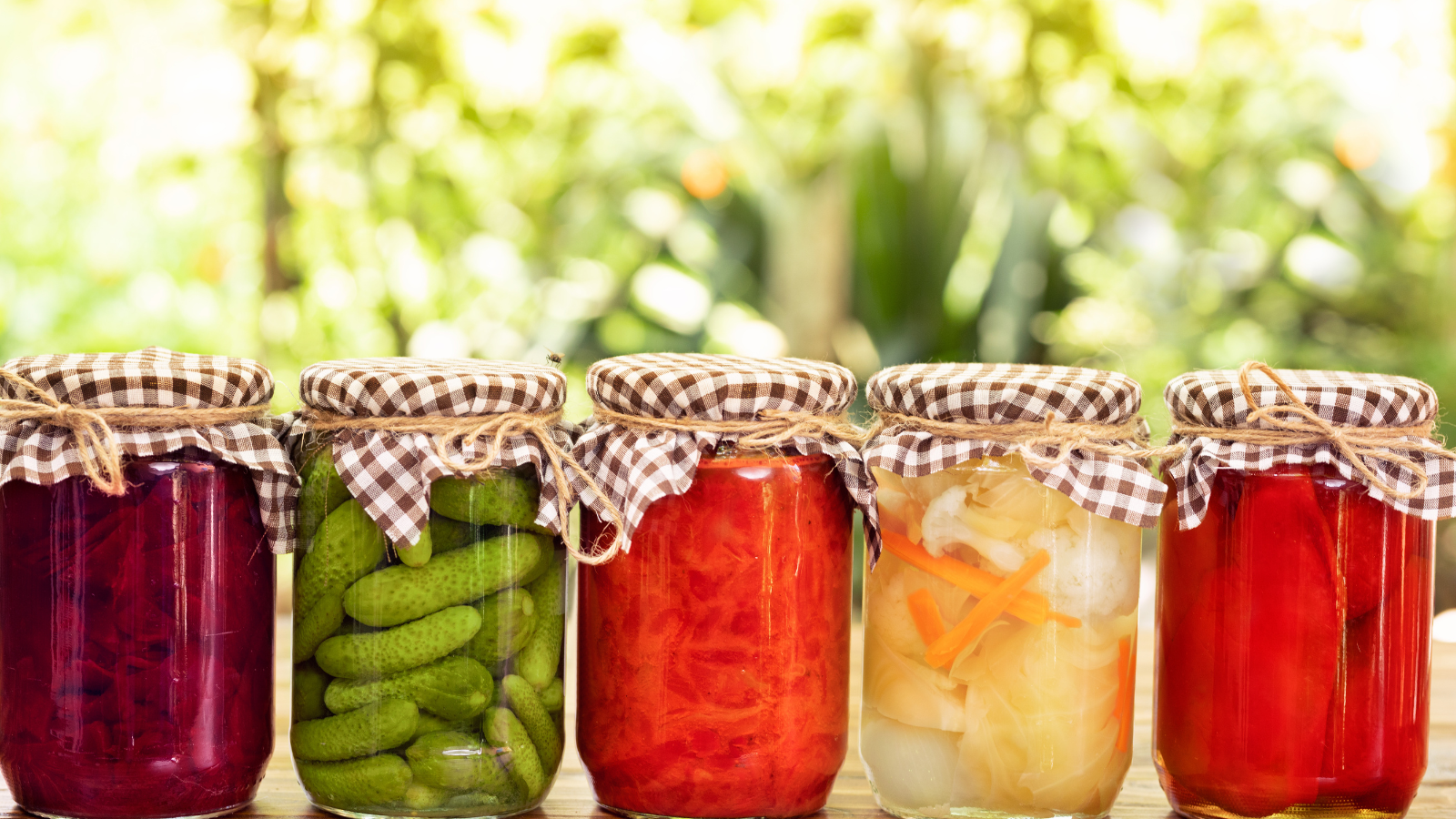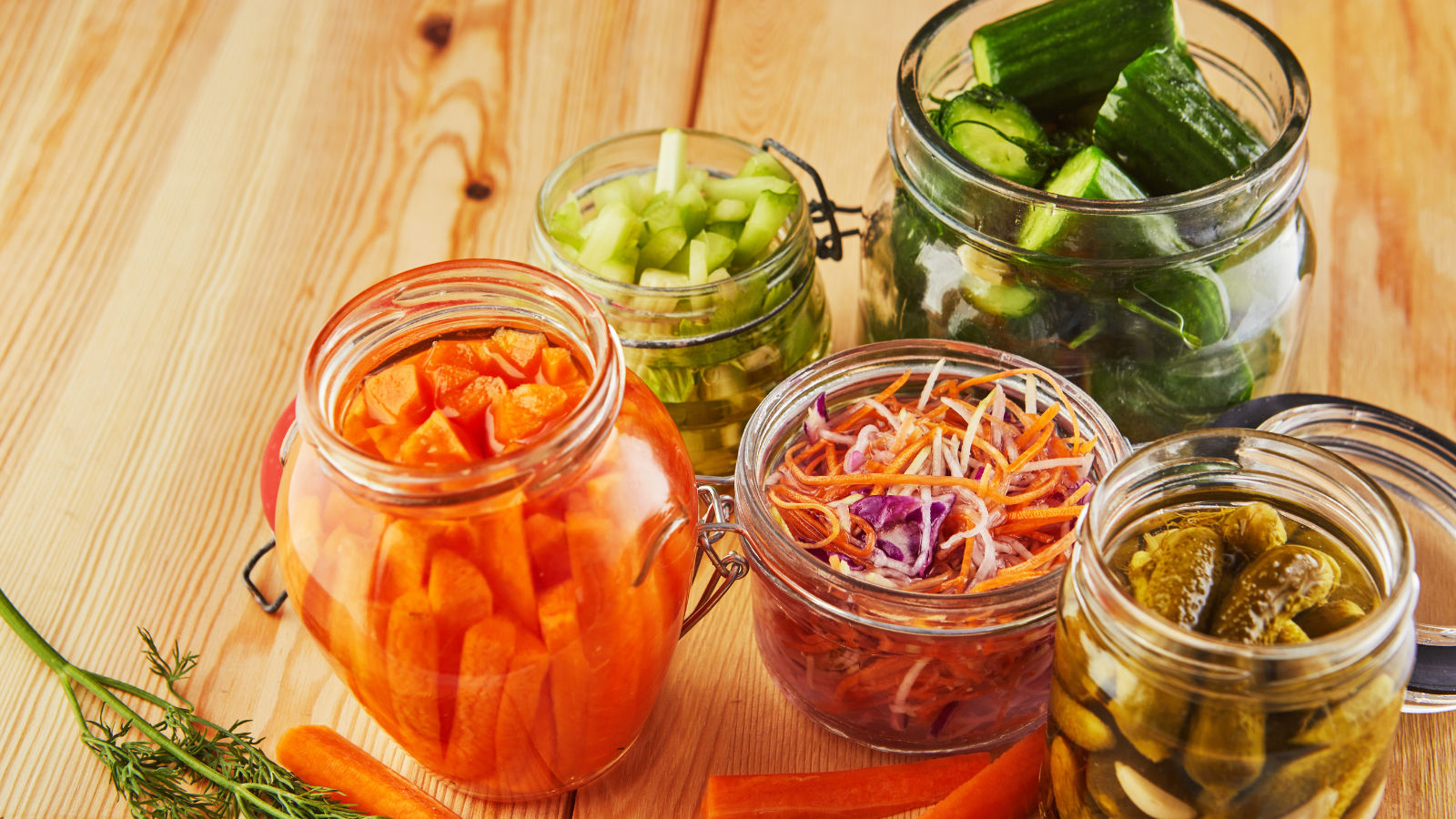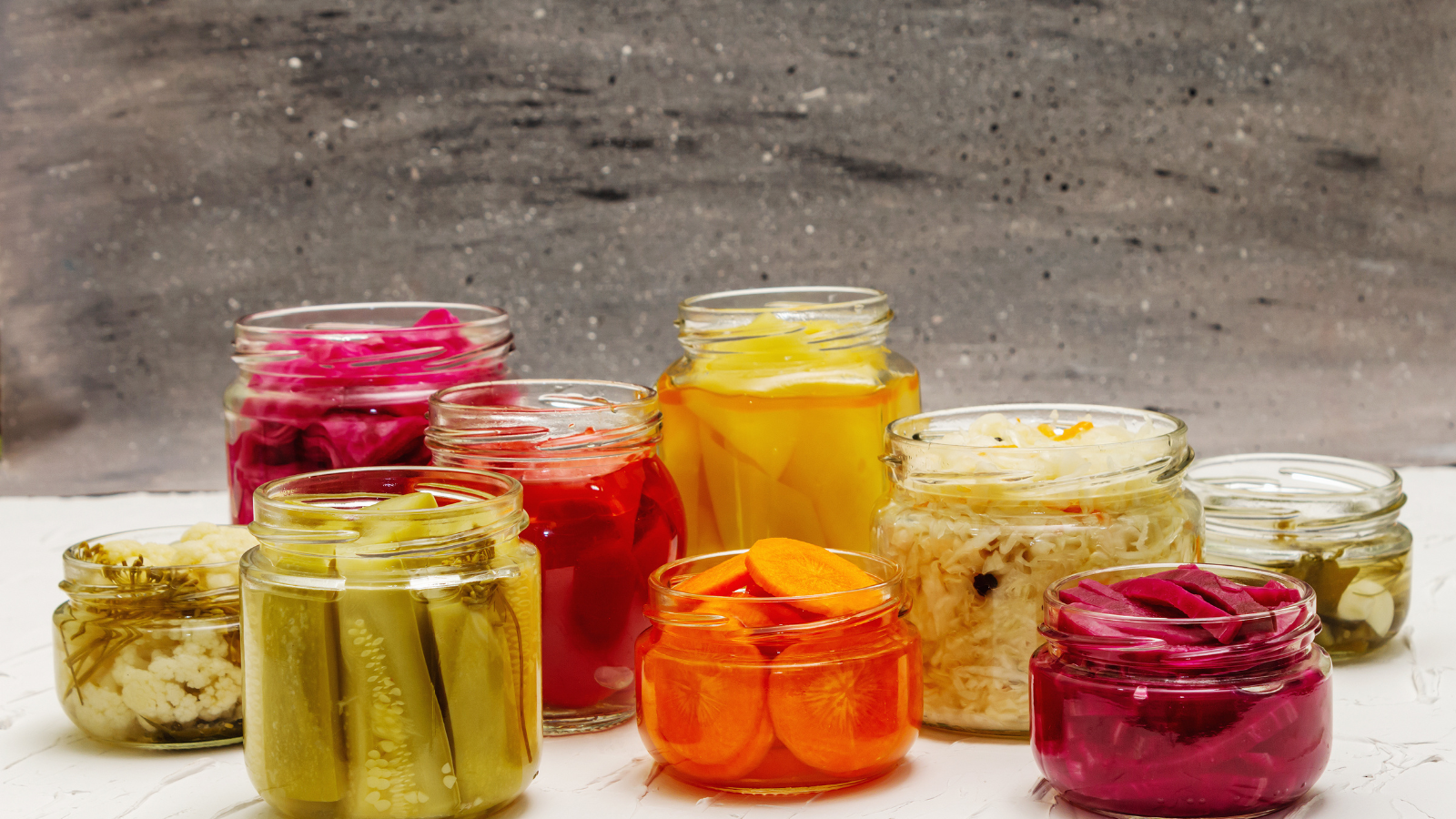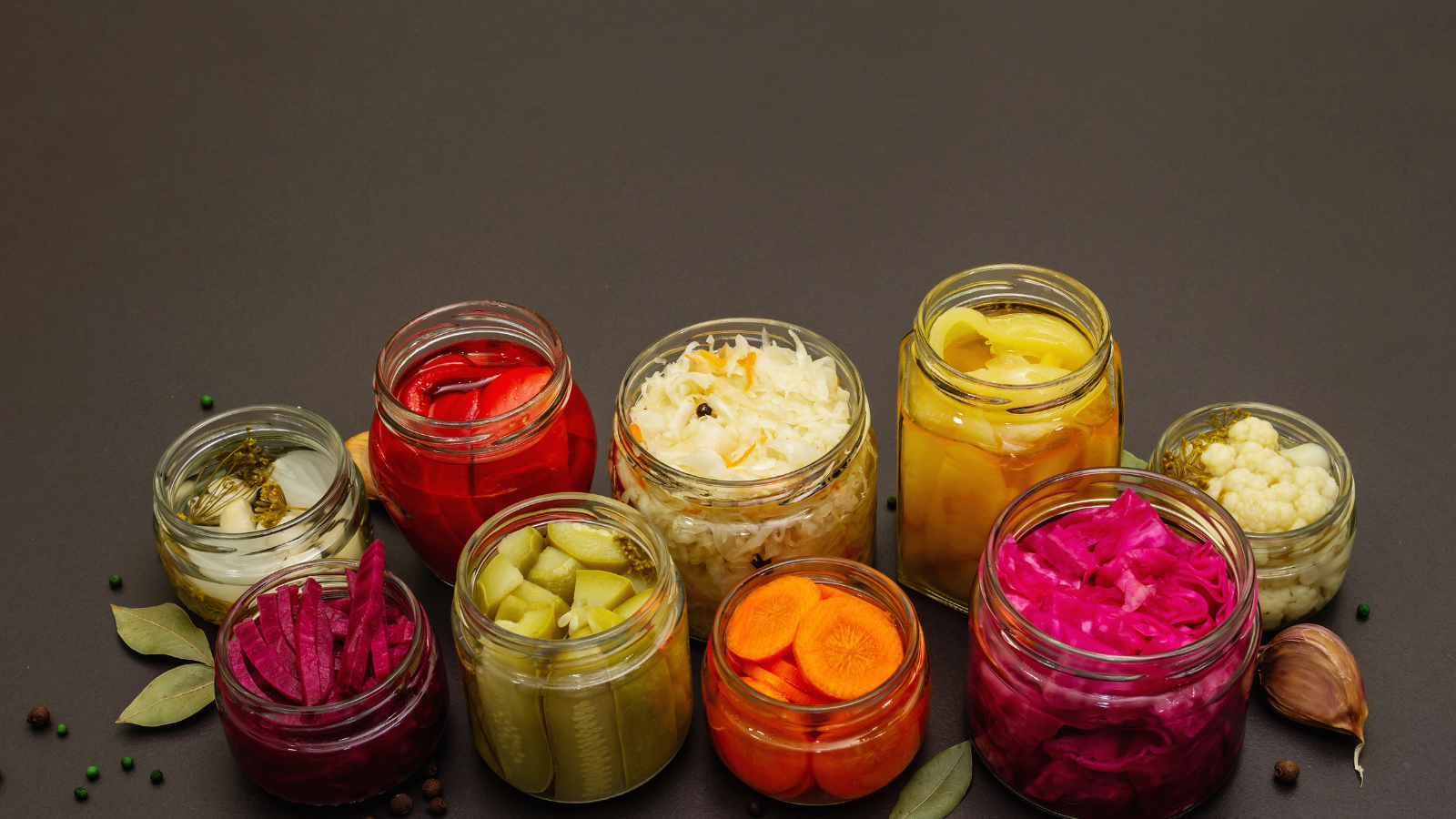Unveiling the Nutritional Treasures of Fermented Vegetables
Fermented vegetables are culinary delights that have graced our tables for centuries, offering a delicious and nutritious addition to our diets. These probiotic-packed gems not only tantalize our taste buds but also contribute significantly to our overall well-being. In this extensive exploration, we will dive deep into the manifold benefits of consuming fermented vegetables, from their gut-friendly probiotics to the simplicity of their preparation. Additionally, we will unravel the fascinating process of fermenting vegetables and provide invaluable tips to ensure the best possible outcomes.
The Marvels of Fermentation

Fermentation is a time-honored process that transforms ordinary raw vegetables into flavorful, gut-loving delights. Through this natural alchemy, the carbohydrates within vegetables undergo a metamorphosis, turning into lactic acid. This not only imparts the characteristic tangy flavor but also extends the shelf life of the produce. Furthermore, it creates an environment teeming with probiotics, the champions of a healthy gut.
Commonly Fermented Vegetables

The realm of fermented vegetables is diverse, offering a plethora of options to cater to various palates. Among the vegetables that undergo this transformative process, cabbage, carrots, cucumbers, and peppers stand as stalwart examples. These vegetables are integral components of traditional dishes from around the world, including sauerkraut, kimchi, and pickles.
Fermenting vegetables allows having your own food supply even in times of crisis. Click here to discover 126 superfoods that you can store without refrigeration for years (a.k.a. The US Army’s forgotten food miracle).
The Bountiful Benefits of Fermented Vegetables

Fermented vegetables offer a cornucopia of health advantages, making them an invaluable dietary inclusion. Let's explore some of these key benefits:
1. Probiotics for Gut Health
Fermented vegetables are replete with probiotics, the unsung heroes of digestive health. These beneficial bacteria bolster digestion, enhance immunity, and may even assist in weight management. A flourishing gut microbiome is essential for overall well-being, and fermented vegetables are a delectable way to promote it.
2. Enhanced Nutrient Absorption
Unlike their non-fermented counterparts, fermented vegetables are easier on the digestive system. This ease of digestion translates to improved nutrient absorption, ensuring that your body receives the maximum nutritional benefits from the foods you consume.
3. Sustainable Food Preservation
Fermentation represents an eco-friendly and sustainable approach to food preservation. It necessitates minimal resources, requires no electricity, and can be accomplished on a small scale. By reducing food waste, fermentation contributes to responsible and sustainable food practices.
4. Long-Term Storage
A particularly appealing aspect of fermented vegetables is their extended shelf life. These culinary creations can be stored for several months, making them an ideal addition to long-term food storage plans. Their durability ensures that you have access to nutrient-rich foods even in challenging circumstances.
5. Reducing Your Carbon Footprint
Engaging in home-based fermentation allows you to reduce your carbon footprint. By producing your own fermented vegetables, you actively participate in sustainable food practices, thereby minimizing the environmental impact associated with food production and transportation.
Incorporating Fermented Vegetables into Your Diet

Incorporating fermented vegetables into your daily diet is a simple and gratifying endeavor. Some popular options to explore include sauerkraut, kimchi, and tempeh. The process of preparing fermented vegetables at home is straightforward:
1. Select fresh, crisp vegetables to ensure the best flavor and texture.
2. Secure a clean, food-grade container that is spacious enough to accommodate your chosen vegetables.
3. Prior to use, ensure that the container is thoroughly cleaned and sterilized.
4. Place the selected vegetables into the container.
5. Add water to cover the vegetables, and sprinkle in a modest amount of salt.
6. If necessary, use a weight to keep the vegetables submerged in the brine (saltwater).
7. Cover the container and allow it to rest at room temperature to facilitate the fermentation process.
Timing Your Fermentation
The duration of fermentation varies depending on the type of vegetable and your desired level of fermentation. Generally, most vegetables become ready to consume after a few days to a week of fermentation. Regular monitoring is advisable, as this allows you to gauge the progress and ensure the quality of your ferment.
Storing Your Fermented Vegetables

Once your vegetables have achieved the desired level of fermentation, transfer them to a clean container and store them in the refrigerator. Fermented vegetables are robust and will retain their quality for several months in cold storage. You can enjoy them as standalone snacks, incorporate them into your favorite recipes, or use them as zesty condiments to elevate your meals.
Tips for Optimal Fermentation
Fermenting vegetables can be a rewarding and creative culinary venture. Here are some essential tips to ensure the best results:
1. Opt for the Freshest Vegetables: Select vegetables that are fresh and crisp, as they yield the most flavorful results.
2. Choose the Right Fermentation Environment: Designate a suitable location for your fermentation endeavors. A cool, dark place is ideal for achieving the best outcomes.
3. Keep Vegetables Submerged: To prevent the formation of mold, ensure that the vegetables remain fully submerged in the brine (saltwater).
4. Regular Inspection: Check your fermenting vegetables periodically, and promptly remove any mold that forms on the surface. This ensures that your ferment remains safe and delicious.
5. Proper Storage: After fermentation is complete, store your vegetables in a cool, dark location to maintain their quality.
The Timeless Appeal of Fermented Vegetables

Fermented vegetables have graced our tables for millennia, but their recent resurgence stems from the growing recognition of their probiotic benefits. Probiotics, the beneficial bacteria that naturally inhabit our bodies, play a pivotal role in maintaining digestive health. When you consume fermented vegetables, you bolster the population of these friendly microorganisms in your system.
In conclusion, the consumption of fermented vegetables offers a multifaceted array of health benefits, ranging from improved digestion to heightened nutrient absorption. These flavorful creations not only enhance the culinary diversity of your diet but also provide essential probiotics for a thriving gut. By delving into the art of fermentation, you not only enrich your well-being but also contribute to a sustainable food future. Embark on this culinary journey, and savor the nutritional treasures of fermented vegetables. Your taste buds and your gut will be forever grateful.




Submit your email and confirm subscription to receive the download link, along with more e-books and helpful tips.
Don't worry, you can unsubscribe at any time
We Value Your Privacy And Your Information Is Never Shared
This site is not a part of the Facebook website or Facebook Inc. Additionally, this site is NOT endorsed by Facebook in any way. FACEBOOK is a trademark of FACEBOOK, Inc.
